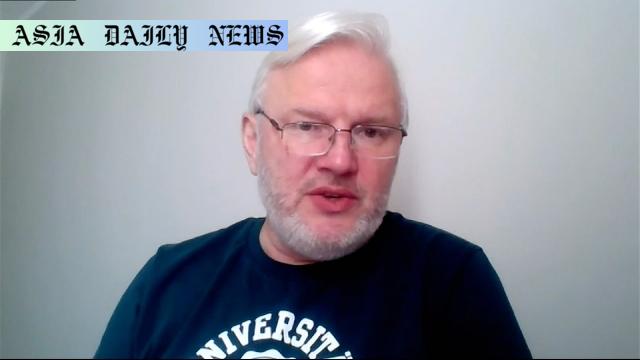Ukraine-US Deal: A scholar sees necessity despite doubts over gaining significant security guarantees.

Importance of the Ukraine-US Deal
The Ukraine-US deal has emerged as a pivotal topic in international geopolitics. At the heart of this conversation lies the Ukrainian scholar Volodymyr Dubovyk’s assertion regarding the crucial nature of this agreement. As an associate professor at Odesa I.I. Mechnikov National University, Dubovyk has highlighted that while the proposed deal might not address all of Ukraine’s security concerns, it presents an opportunity that cannot be overlooked. Ukraine is currently in a fragile state, requiring strong alliances, particularly with global powerhouses like the United States. This deal, which reportedly includes discussions about critical minerals, raises strategic questions about how Ukraine can secure military and economic aid in the short term.
Dubovyk underlines that this agreement might not immediately provide the security guarantees desired by Ukraine. However, it represents a strategic step toward renewing the US’s military support. As the war-stricken nation navigates its security landscape, aligning with the US becomes essential not just for defense but also for economic stability through potential partnerships related to critical technology and resource development. The importance of this deal goes beyond immediate concerns, touching on Ukraine’s broader geopolitical alignment amidst tensions with Russia.
Concerns About Limited Security Guarantees
One of the biggest challenges noted by Dubovyk is the limited scope of the security guarantees that the proposed deal might provide. Ukraine has been seeking robust and tangible commitments from its allies, especially in light of ongoing conflicts and threats from neighboring Russia. According to Dubovyk, the framework of the deal, as it stands, might lack the depth needed to fully insulate Ukraine from external threats. This makes it an agreement born out of necessity rather than choice—a pragmatic move to ensure the flow of military and defense resources from a nation that may currently hold a divergent geopolitical agenda.
The backdrop of this negotiation is critical. The administration of US President Donald Trump has shown an inclination toward thawing relations with Russia, raising concerns for Ukraine. Dubovyk points out that any perceived prioritization of Moscow relations over Kyiv’s concerns could further strain US support for Ukraine. Yet, given limited alternatives, this deal remains significant—it emphasizes the complex interplay of necessity, compromise, and survival that dominates Ukraine’s decision-making process.
The Role of US Support in Ukraine’s Stability
The United States has long served as a strategic ally to Ukraine, especially during its most vulnerable moments. Renewed military support from the US symbolizes not just a lifeline for Ukraine but also a powerful message of resistance against aggressors like Russia. Dubovyk emphasizes how vital this partnership remains; however, the precarious position Ukraine finds itself in means it lacks the leverage to negotiate from a place of strength. This asymmetry forces Ukraine to make concessions that may not align with its long-term aspirations but are critical for its immediate survival.
Additionally, the inclusion of critical minerals in the deal raises questions about resource management and exploitation—a topic that could become both an asset and a vulnerability. If approached wisely, this partnership could bolster Ukraine’s economy and help diversify its industrial base. However, safeguarding its interests in such a deal will require robust negotiation skills and vigilance to avoid being overshadowed by bigger players in the partnership.
Challenges in Pursuing Peace
Lastly, Dubovyk highlights that Ukraine faces a daunting journey toward achieving any meaningful peace agreement. The disparity between Ukrainian and US perspectives on securing peace makes finding common ground a herculean task. While Ukraine seeks a secure future free from Russian aggression, the US may have broader global interests that could complicate its commitment to Ukraine’s specific needs. This dynamic places Ukraine in a challenging bind, requiring it to navigate diplomatic waters carefully while ensuring its core interests are not sidelined.
The need for pragmatic decision-making cannot be overstated in such a scenario. Ukraine’s leadership will have to balance short-term necessities with its aspirations for long-term sovereignty, security, and prosperity. This deal, while far from ideal, could serve as a stepping stone toward mitigating immediate risks while keeping the door open for more comprehensive agreements in the future.
Commentary
Reflecting on the Ukraine-US Deal
The Ukraine-US deal represents a crucial yet contentious chapter in global diplomacy. As highlighted by Volodymyr Dubovyk, the agreement is far from perfect but must be evaluated within the context of Ukraine’s current vulnerabilities and strategic imperatives. From my perspective, this deal is emblematic of the intricate balancing act that smaller nations like Ukraine must perform when partnering with global superpowers. The necessity of securing US support during a time of heightened tensions cannot be ignored, but neither can the reservations about the limited assurances offered by this agreement.
A Deal Born of Pragmatism
What strikes me most is the pragmatic lens through which Dubovyk views this situation. Ukraine’s decision to engage with the US, even with the potential shortcomings of the deal, is a testament to the resilience and adaptability of its leadership. The inclusion of critical minerals in the discussion reflects a forward-thinking approach—leveraging natural resources as a bargaining chip to secure greater economic leverage. Still, this also raises concerns about resource exploitation and dependency that could come back to haunt Ukraine in the future.
The Bigger Geopolitical Picture
Lastly, the overarching dynamics of US-Russia relations loom large over this deal. From Ukraine’s standpoint, maintaining strong ties with the US is non-negotiable, despite shifting priorities under the Trump administration. This scenario drives home the importance of a diversified diplomatic strategy for Ukraine—one that ensures its interests are represented without becoming overly reliant on a single ally. Overall, this deal, while imperfect, reflects the complex realities of modern geopolitics, and Ukraine’s ability to navigate this terrain will undoubtedly shape its future in profound ways.


